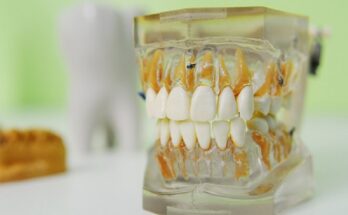Finding the best treatment strategy can significantly impact a person’s ability to recover when dealing with the overwhelming challenges of depression. The use of cognitive behavioral therapy (CBT), a widely utilized and research-based therapy approach, has been used to treat depression. In this blog, we will delve into what CBT entails and what you can expect from your sessions with a depression therapist.
Understanding Cognitive Behavioral Therapy
A type of psychotherapy called cognitive behavioral therapy concentrates on the connection between thoughts, feelings, and behaviors. It is based on the idea that our ideas affect our emotions and behavior and that we may successfully alter our emotions and behaviors by recognizing and questioning negative or erroneous thinking.
What to Expect in CBT Sessions:
- Evaluation and Goal Setting: Your journey with a depression therapist begins with an initial evaluation session. This session is crucial as it allows the therapist to gain a comprehensive understanding of your unique experiences, symptoms, and challenges related to depression. Together, you and the therapist will establish specific goals for your therapy.
- Identifying Negative Thought Patterns: CBT aims to identify and address the negative thought patterns that contribute to depressive symptoms. Your therapist will help you become aware of these patterns and understand how they affect your mood and behavior.
- Challenging Cognitive Distortions: During CBT sessions, your depression therapist will guide you through techniques to challenge and reframe negative or distorted thoughts. By examining the evidence supporting or refuting these thoughts, you can develop a more balanced and realistic perspective.
- Learning Coping Strategies: CBT equips you with practical coping strategies to manage depressive symptoms. These strategies may include relaxation techniques, problem-solving skills, and stress management exercises. By learning and practicing these skills, you can enhance your ability to deal with the challenges that contribute to your depression.
- Behavioral Activation: Depression often leads to a decrease in engaging in enjoyable activities, further perpetuating the negative cycle. In CBT, therapists assist clients in identifying enjoyable and fulfilling activities and support their reintegration into daily life. This behavioral activation helps combat the withdrawal and isolation commonly associated with depression.
- Homework Assignments: CBT is an active therapy that involves ongoing work outside of therapy sessions. Your depression therapist may assign you homework exercises, such as journaling or practicing specific coping strategies. These assignments aim to reinforce the skills learned during therapy and promote progress between sessions.
- Monitoring Progress: Throughout your CBT journey, your depression therapist will regularly monitor your progress and make necessary adjustments to your treatment plan. This process ensures that therapy remains tailored to your evolving needs and goals.
The Role of the Depression Therapist
A depression therapist plays a vital role in the CBT process. They offer a safe space where you may talk about your feelings and thoughts without fear of criticism. A skilled therapist will employ evidence-based techniques, guide you through challenging moments, and help you build resilience and adaptive thinking patterns.
Finding a Depression Therapist
When seeking a depression therapist, it is important to find someone who specializes in CBT and has experience treating depression. You can start by consulting your primary care physician or mental health professional for recommendations. Online directories and mental health organizations can also provide valuable resources for finding qualified therapists in your area.
Disclaimer: The data presented in this blog is for educational reasons only and shouldn’t be used in place of seeing a competent physician. If you are experiencing severe depression or any mental health concerns, please consult a qualified healthcare professional.
Taking the First Step
Embarking on therapy can be a significant step towards improving your mental well-being. It is crucial to take the initiative and contact a depression therapist if you are thinking about trying CBT for depression. To ascertain whether CBT is the best technique for you and if they are a suitable fit for your needs, the therapist will perform an initial examination.
Building a Therapeutic Relationship
Establishing a strong therapeutic relationship with your depression therapist is crucial for effective CBT. A skilled therapist will foster a friendly and safe environment where you feel at ease expressing your feelings. They will listen attentively, show empathy, and work collaboratively with you to develop a treatment plan tailored to your unique circumstances.
The Process of Change
CBT is a structured and goal-oriented therapy that focuses on the present and future rather than dwelling on the past. By assisting you in comprehending the relationship between your thoughts, feelings, and behaviors, the therapist will lead you through the transformational process. By identifying and challenging negative thinking patterns, you can learn to replace them with more positive and realistic thoughts.
A typical CBT session may involve discussing recent experiences, exploring the associated thoughts and emotions, and examining any underlying assumptions or beliefs. Your therapist will guide you in challenging the validity of negative thoughts and replacing them with more balanced and adaptive alternatives.
Benefits of CBT for Depression:
- Empowerment: CBT empowers individuals by teaching them skills and techniques to manage their depression. By understanding the connection between their thoughts, emotions, and behaviors, individuals can develop a sense of control and actively participate in their recovery.
- Long-lasting Results: CBT focuses on equipping individuals with practical tools and strategies that can be applied in various situations. By learning to challenge negative thoughts and engage in positive behaviors, individuals can continue to apply these skills even after therapy concludes, leading to long-lasting results.
- Addressing Underlying Issues: CBT not only addresses the symptoms of depression but also explores the underlying factors contributing to the condition. By understanding and working through these underlying issues, individuals can achieve a more comprehensive and sustainable recovery.
- Collaborative Approach: CBT involves an active partnership between the individual and the depression therapist. The therapist makes sure that the therapy is still customized to the patient’s needs through cooperative talks, goal setting, and regular feedback, increasing the success of the treatment.
- Complementing Medication: CBT can be used as a standalone treatment for mild to moderate depression or as an effective complement to medication for severe depression. Combining therapy and medication can provide a holistic approach to managing depression and maximizing the chances of recovery.
Also Read: Best Ideas to Build a Small Gym at Home
Conclusion
Cognitive Behavioral Therapy (CBT) offers hope and practical tools for individuals battling depression. CBT encourages people to confront destructive thought patterns, pick up coping mechanisms, and reclaim control over their life by emphasizing the connection between thoughts, feelings, and behaviors. Working with a skilled depression therapist can provide the necessary support and guidance throughout this transformative journey. Remember, you don’t have to face depression alone, and seeking professional help is a courageous and essential step toward healing.




